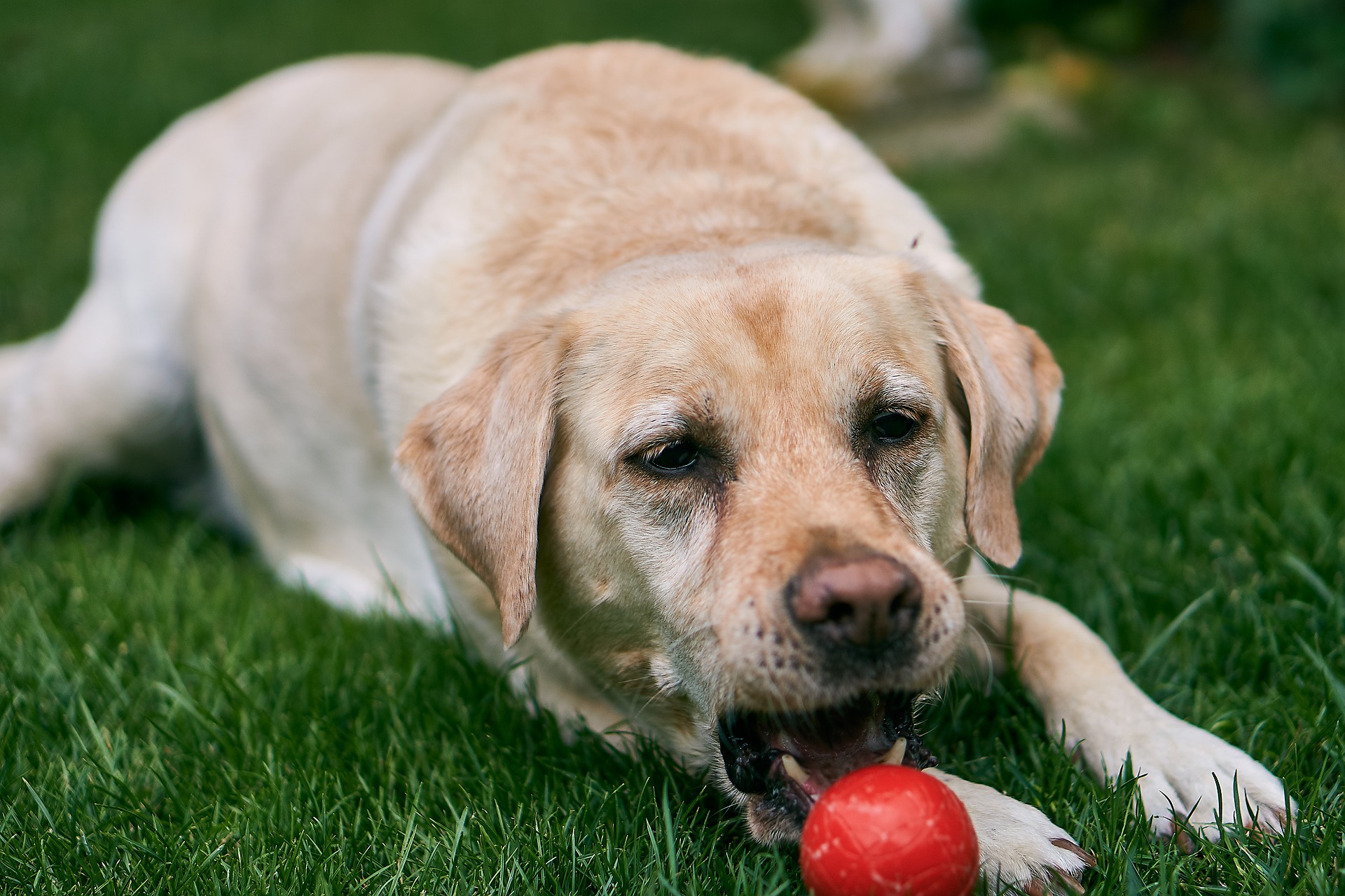Mouthiness may not seem like an issue when your dog is a puppy, but it can become quite annoying and potentially harmful as they get bigger and stronger. There is not usually malicious intent behind the mouthing; rather, dogs do it as a form of play or energy release when they are excited. Even when they are little, you should not allow your dog to bite you during play. Otherwise, it will be harder to train the behavior out of them later. If you have a particularly mouthy dog, begin teaching them to be gentler using some of these methods.
- Stop giving them attention when they bite. As soon as your dog starts getting mouthy during play, disengage from the game and stop paying attention to them. Most dogs are highly motivated by the attention they receive–they jump up to demand your attention and even if you put their paws on the floor or push them away, they still view that as receiving attention and are likely to repeat the action. By immediately refusing to acknowledge them when they bite, your pup will learn that when their teeth touch your skin, you stop playing. Give them a few minutes to calm down, then offer to resume playing.
- Consequences are better than punishment. Physically punishing your dog is likely to just exacerbate the problem or cause others. It decreases their trust in you and won’t produce ideal results. Instead of punishing your dog, use consequences related to their misbehavior. For example, if they bite your hand while playing, you no longer play. If they gnaw on something they aren’t supposed to, remove their access to that room or area. If they try to bite their leash while you walk, they lose the privilege of a long leash and you should shorten it to where they cannot reach it.
- Redirect them to something appropriate. When dogs are mouthing at your arm or hand, they are expressing a need. The best way to handle acting out like this is to fill the need using appropriate tools. Next time your dog goes to chew on something they shouldn’t, redirect them to a toy that allows them to fill the need to gnaw without causing harm to themselves, yourself, or your things. Praise them verbally and with a treat when they choose their own toys to chew on to encourage their good choices.
- Give them plenty of exercise. Chewing often indicates that your dog has excess energy that they are trying to expend. If you notice your pup is constantly gnawing on things, try increasing the length or frequency of their walks. This will help keep them calmer in the house and hopefully discourage them from bad biting habits.
- Pay close attention when kids are playing with your dog. The high squeals of kids’ laughter often riles the dog up and can get them overexcited. Children will not know how to establish these boundaries unless they are taught to, so pay attention and intervene if you see your dog getting mouthy with them while they play.
All dogs have habits or behaviors that need to be trained out of them. If you are having difficulty with taming your mouthy dog, or simply need some help with basic commands – call the experts at Gulf Coast K9 Dog Training. We are located in Bradenton, Florida, and proudly serve dogs and their owners in Sarasota and Manatee County.





